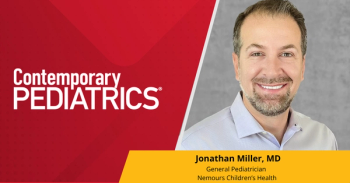
Don’t forget the value of the PNP on the cystic fibrosis team!
Cystic fibrosis (CF) is an emotionally and medically complex disorder. Advancements on the care management for children with CF are very promising. Pediatric nurse practitioners are a critical part of that team.
Cystic fibrosis (CF) is an emotionally and medically complex disorder. The complexity of the care requirements for a child with CF is first introduced in nursing baccalaureate programs. Registered nurses who specialize in pediatrics, including inpatient and outpatient settings, schools, and school-based health centers, care for children with CF on a regular basis. In addition, the assessment, diagnosis, and treatment of children with pulmonary conditions, including children with medically complex disorders, such as CF, are a strong focus of pediatric nurse practitioner (PNP) programs.
Pediatric nurse practitioner students have experiences in pediatric specialty outpatient centers that serve medically complex children. Pediatric nurse practitioner graduates are prepared to be a valuable member of the Team of Providers who are responsible for treatment planning to meet the needs of children with comprehensive healthcare needs, including CF. Pediatric nurse practitioners play critical roles in the day-to-day management of children with CF, including both their physical and emotional needs, as well as the emotional need of parents and family members through chronic illness care models and family-centered treatment planning strategies.
I encourage all PNPs to update their knowledge on CF by reading both CF articles:
Advancements on the care management for children with CF are very promising. Pediatric nurse practitioners are a critical part of that team.
CF treatment plans include an increase focus on GI problems
We know that children with CF either present with failure to thrive (FTT) or experience FTT at various points in time throughout childhood. The major focus of Drs. Reed and Shores article is on the implications of gastrointestinal (GI) problems in these children. Optimal nutrition is directly related to all pediatric/adolescent patients reaching their full potential for growth and development. However, to achieve optimal growth, children with CF require astute monitoring of their nutritional behaviors and status by the team of health care providers and their parents. The children require increased nutritional intake to achieve normal growth and development. Additionally, Drs. Reed and Shores discuss the unique needs of the children with CF who require supplements with fat-soluble vitamins, pancreatic enzyme replacement, and interventions by a nutritionist. There are numerous GI problems that emerge throughout the children’s growth and developmental years that are addressed by the team caring for children with CF.
The CF team’s role in the emotional health of the child and family
I vividly recall the emotional struggles of both children and family members who were caring for their children with CF. Years ago, prior to genetic and other diagnostic testing, including the inclusion of CF testing on the newborn screen, families had 2 or 3 children before the oldest child was diagnosed with CF. Often, their other children were subsequently diagnosed. The emotions these families experienced were overwhelming! I also recall caring for an adolescent with CF, who wanted to be a nurse, as she appreciated the care of her nurses. I was personally overwhelmed when she asked me if her health would permit her to grow old enough to enter college and fulfill her dream. The emotional turmoil persists for both parents and children today, even with advances in drug therapy, and clinical evidence to better manage the multitude of physical and emotional problems that children with CF experience.
My message is to always remember the emotional turmoil the child and parents experience and to include PNPs on the team who are also skilled in caring for the emotional needs of the child/adolescent and parents using family-centered approach to care management.
Newsletter
Access practical, evidence-based guidance to support better care for our youngest patients. Join our email list for the latest clinical updates.








